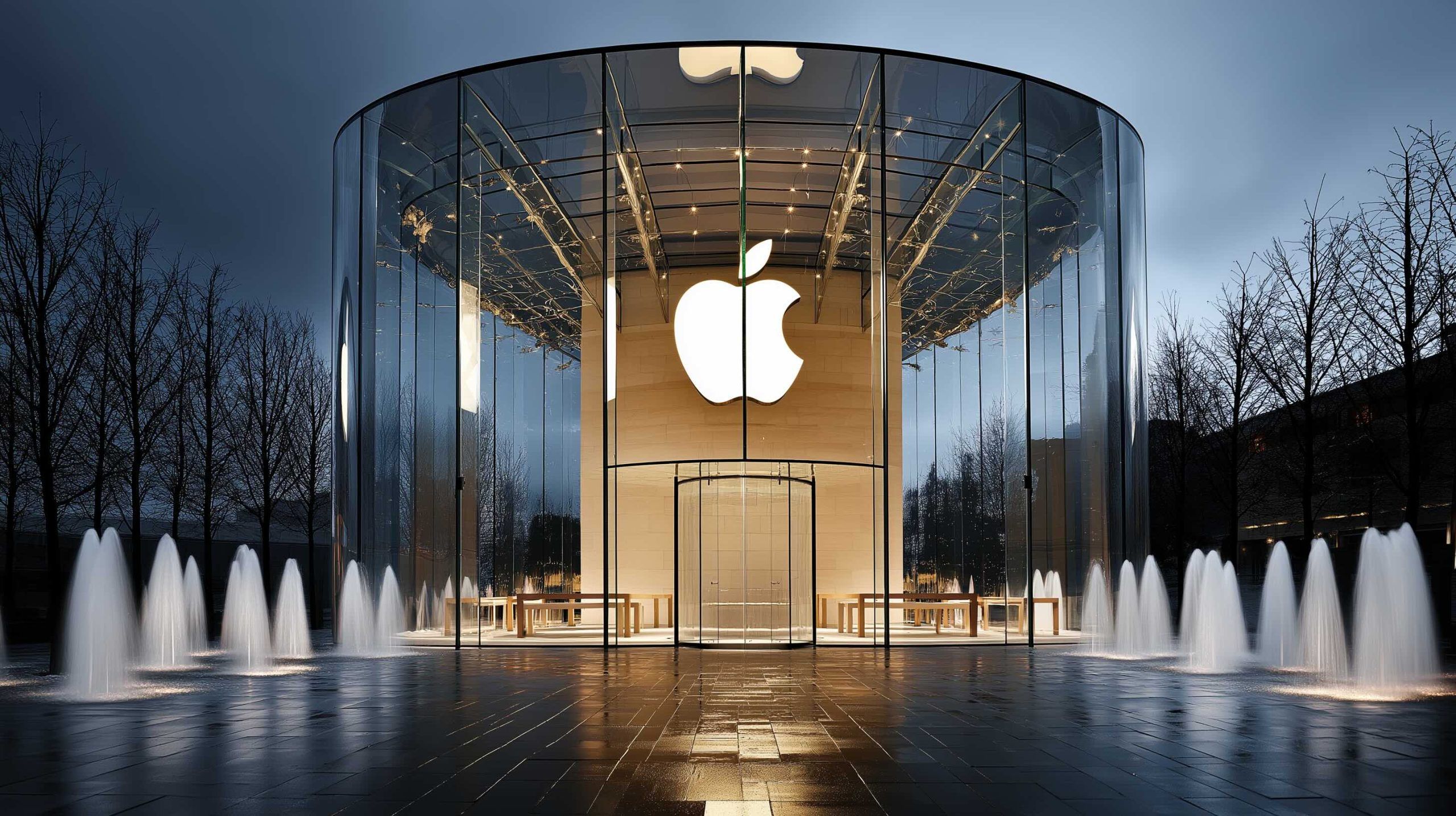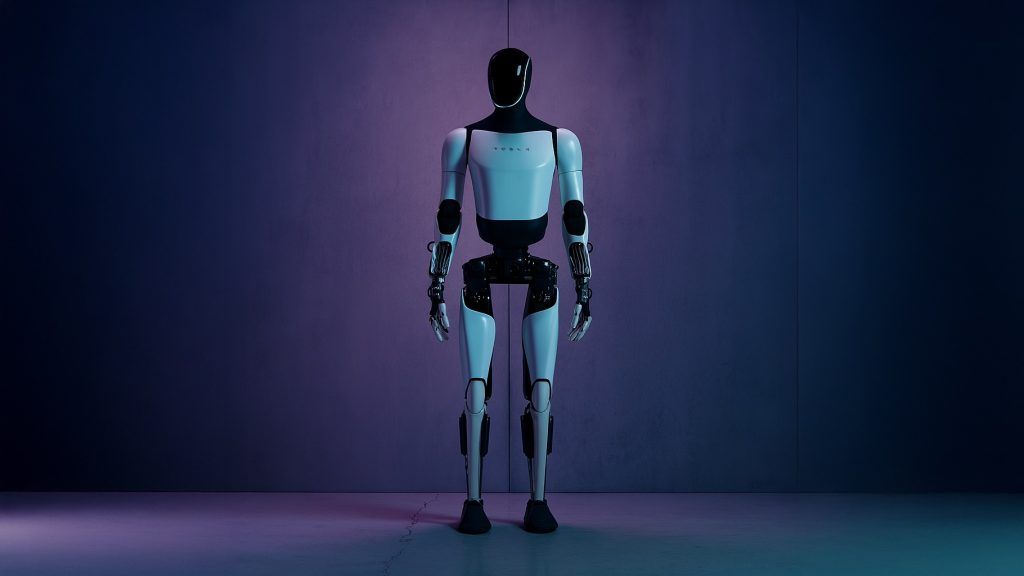- A foldable iPhone is expected in late 2026 alongside iOS 27, with a 7.8-inch inner display, a 5.5-inch outer screen, a titanium-steel hinge from Samsung Display, a price around $2,000, and Touch ID on the side button replacing Face ID.
- The iPad Pro expected in late 2025 will use the M5 chip and add dual front-facing cameras—one on the landscape edge and one on the portrait edge—to enable FaceTime in any orientation.
- In the UK encryption showdown, Apple withdrew its Advanced Data Protection from the UK and challenged the government over a backdoor mandate, with late-July signals that officials are retreating and Apple reiterating it will never build a master key.
- India production surged 53% year over year to about 23.9 million iPhones in the first half of 2025, accounting for roughly 17% of global output.
- Apple published a 90-page “Apple Intelligence” tech report detailing two AI models: a ~3 billion-parameter on-device model and a larger cloud-based Mixture-of-Experts model trained on public data via Applebot.
- Apple’s on-device 3B model is opened to third-party developers through a new framework, enabling faster, private AI on Apple silicon with 2-bit model quantization.
- Apple filed a lawsuit against YouTuber Jon Prosser under the Defend Trade Secrets Act and the Computer Fraud and Abuse Act for allegedly leaking iOS 26 and showing an unreleased interface.
- Apple TV+ earned 81 Emmy nominations in 2025, led by Severance with 27 nominations and The Studio with 23 nominations, and total acting nominations reached 31.
- Apple Sports launched in Mexico with version 3.1 adding real-time Liga MX tracking and cross-border Leagues Cup, and securing FA Community Shield rights.
- Morgan Stanley projected Apple Q3 2025 revenue at about $90.7 billion, with iPhone revenue up around 2% in units and Services growth of 11–12%.
Foldable iPhone Rumors Break the Mold
Apple is finally gearing up to enter the foldable phone race – but in a way that even insiders call “un-Apple-like.” According to Bloomberg’s Mark Gurman, the first foldable iPhone is expected in late 2026 alongside iOS 27, and Apple’s approach will prioritize refining existing foldable tech rather than debuting wild new designs macrumors.com thetechoutlook.com. Gurman reports iOS 27 will “prioritize” special software features for a book-style folding iPhone macrumors.com. Leaks suggest a roughly 7.8-inch inner display and 5.5-inch outer screen with a less visible crease and a sturdier titanium-steel hinge – all supplied by Samsung Display macrumors.com thetechoutlook.com. In other words, Apple plans to fix common foldable pain points (like screen durability) rather than reinvent the wheel. Notably, this foldable iPhone Fold could command ~$2,000 – Apple’s priciest phone ever – and ditch Face ID for Touch ID on a side button to save space macrumors.com. It’s an unusually pragmatic strategy for Apple, leading Gurman to dub it the company’s “least Apple-like launch ever” thetechoutlook.com thetechoutlook.com. Still, pent-up demand is high among Apple loyalists who’ve watched Android rivals fold for years macrumors.com. Some analysts even predict Apple will dominate foldables within months of launch despite its late start thetechoutlook.com. If that proves true, Apple’s me-too foldable may quickly outshine early pioneers – an outcome that would indeed be “un-Apple-like” in its own right.
iPad Pro to Get Two Selfie Cameras (Seriously)
Another hardware rumor turning heads in July is a major iPad Pro camera upgrade. Apple’s next iPad Pro, expected in late 2025 with a new M5 chip, will sport dual front-facing cameras – one on the landscape edge and one on the portrait edge macrumors.com. This nifty addition means video calls and Face ID will work optimally in any orientation, solving a pain point for iPad users who currently have to choose between landscape-only cameras or awkward angles theverge.com. The current M4 iPad Pro moved its single selfie cam to the long side for horizontal use, but that frustrates folks who hold the iPad vertically theverge.com. With two cameras, the upcoming M5 iPad Pro can seamlessly handle both modes: no more accidentally looking off-camera or covering the lens with your hand theverge.com. Aside from the dual cams, this iPad Pro refresh is expected to be modest – thinner bezels and that faster M5 chip – following a significant OLED redesign last year macrumors.com. Still, the camera tweak is drawing praise for finally “appeasing fans of both landscape and portrait mode” who just want to FaceTime comfortably theverge.com. It’s a small change with big quality-of-life impact, and it shows Apple listening to user gripes (even if it took a while). As one report quipped, the new dual-camera setup will “make it easier to FaceTime friends… no matter where you put your hands” theverge.com – a practical win for iPad loyalists.
Privacy Standoff: UK Backs Down on Encryption Backdoor
Apple’s steadfast stance on user privacy faced a political stress test in the UK – and by July it appears Apple won the encryption showdown. Earlier this year, Britain’s Home Office quietly ordered Apple to insert a “back door” into its encrypted services (like iCloud and iMessage) so law enforcement could access user data theverge.com. Apple’s response? A hard “no”, backed by bold action. The company withdrew its new Advanced Data Protection (end-to-end encryption for iCloud backups) from the UK rather than weaken its security, and even filed a legal challenge against the government mandate theguardian.com theguardian.com. By late July, UK officials signaled they’re retreating from the demand. Multiple reports say pressure from Washington – including outspoken opposition from U.S. lawmakers – has the UK “working on a way out” of the policy theverge.com theguardian.com. “The Home Office is basically going to have to back down,” one Whitehall source admitted bluntly theverge.com. Even the UK government now seems to recognize that forcing an encryption backdoor would be “crazy” and could backfire badly theguardian.com theguardian.com. Apple, which insists it will “never” build a master key or backdoor for any government theguardian.com, is effectively getting its way. The about-face isn’t just a victory for Apple, but a landmark moment for digital privacy. Security experts note it’s extremely rare for a major government to so publicly reverse course on surveillance powers – a testament to Apple’s leverage and the global consensus against sabotaging encryption. In the end, privacy-by-design held its ground: Apple’s UK customers will keep their data locked down, and Big Brother will have to find another way.
Apple Deepens Its Roots in India
July brought fresh evidence that India is becoming Apple’s new power center – both as a manufacturing hub and a booming market. A new report from Canalys reveals iPhone production in India surged 53% year-over-year in early 2025, reaching about 23.9 million units in the first half appleinsider.com. That amounts to roughly 17% of global iPhone output now coming from India, a share that has “exploded” after just a few years of Apple ramping up operations there appleinsider.com appleinsider.com. At this pace, analysts project India could produce 25% of the world’s iPhones by 2027 appleinsider.com. Driving the boom are hefty investments (like Foxconn’s new $1.5 billion factory) and Apple’s strategy to diversify beyond China appleinsider.com appleinsider.com. It’s paying off: Apple CEO Tim Cook recently noted that half of all iPhones sold in the U.S. last quarter were actually made in India appleinsider.com – a remarkable shift enabled by tariff pressures and supply chain tweaks.
It’s not just production – Indian consumers are snapping up iPhones in record numbers too. Thanks to rising incomes and aggressive financing offers, Apple cracked the top 5 smartphone brands in India for the first time, and iPhone revenues in India jumped 28% year-on-year in Q1 2025 appleinsider.com. Premium models like the Pro series are increasingly popular with India’s burgeoning middle class. Apple is responding by planting deeper retail roots: the company opened its first two flagship Apple Stores in India this spring, and is already building another in Mumbai (Sky City Mall) with rumors of one in Bengaluru as well appleinsider.com. All this underscores how crucial India has become to Apple’s future. As one report put it, Apple is “shifting away from a China-centric approach” to a dual base in India appleinsider.com – hedging geopolitical risks while tapping into a huge growth market. July’s numbers show that strategy kicking into high gear.
Slow and Steady on AI – with a Privacy Twist
In the era of ChatGPT hype, Apple has taken flak for being “behind” on AI, but July’s revelations show a company deliberately playing a different game with artificial intelligence. Apple quietly published a 90-page tech report detailing its new “Apple Intelligence” foundation language models – and the highlights are fascinating 9to5mac.com 9to5mac.com. Apple introduced two advanced AI models: a ~3 billion-parameter model that runs entirely on-device (likely one of the largest ever deployed on a phone) and a larger cloud-based model that uses a novel Mixture-of-Experts architecture on Apple’s private servers appleinsider.com 9to5mac.com. Unlike rivals that hoover up any data they can, Apple stresses that it did not train these models on your personal texts, photos, or emails appleinsider.com appleinsider.com. Instead, Applebot (Apple’s web crawler) gathered “hundreds of billions of pages” of publicly available web content – focusing on high-quality, consented data sources – to train the AI appleinsider.com appleinsider.com. The company is almost proudly cautious, filtering out junk and respecting websites’ opt-out rules in a bid to build “smarter datasets from cleaner, public sources” and avoid privacy pitfalls appleinsider.com appleinsider.com. One analyst noted Apple appears to be “one of the only companies taking an ethical approach to AI training,” prioritizing data integrity over sheer volume 1 .
Apple’s AI models also underwent rigorous fine-tuning for safety, cultural sensitivity, and respectfulness. The tech report describes how Apple used human feedback and safety classifiers to teach the AI to refuse inappropriate requests (hate speech, misinformation, etc.) and to adapt its tone and answers to local norms appleinsider.com appleinsider.com. In practice, these efforts are bearing fruit across Apple’s ecosystem. In iOS 26, new “Apple Intelligence” features respond faster, handle complex prompts more reliably, and support more languages – all without sending your data to the cloud appleinsider.com appleinsider.com. For example, Apple’s Genmoji feature can generate custom emoji without stumbling into inappropriate imagery, and the new image-to-text parser can intelligently turn a photo of a flyer into a Calendar event appleinsider.com. Thanks to Apple’s Private Cloud Compute setup, even when the big server-side model helps out, your requests stay end-to-end encrypted so that “Apple cannot access” the contents appleinsider.com 2 .
All told, Apple’s AI strategy might be best summed up as “slow is smooth, smooth is fast.” The company is moving deliberately – some would say too slowly – in rolling out AI-driven features, but it’s doing so in a privacy-centric, hardware-optimized way. Notably, Apple even opened up its on-device 3B model to third-party developers with a new framework, letting apps use powerful AI locally rather than rely on cloud APIs appleinsider.com appleinsider.com. This gives developers “faster results, lower costs, and tighter user privacy” by leveraging Apple’s silicon and 2-bit model quantization tricks appleinsider.com appleinsider.com. It’s a very Apple-esque approach to AI: integrate it quietly under the hood, make it private and efficient, and avoid the spotlight-grabbing chatbots until the tech (and society) matures. Financial analysts have noted that investors don’t yet “appreciate” Apple’s AI work compared to the flashy AI of Google or Meta appleinsider.com. But as Apple’s July disclosures show, the company is far from absent in the AI race – it’s just running on its own track.
Apple Gets Tough on Leaks and Legal Drama
Apple also made waves in July by striking back at leakers in court – a rare move that underscores its tightening grip on product secrecy. The company filed a lawsuit against prominent tech YouTuber Jon Prosser, accusing him of orchestrating a scheme to steal trade secrets about iOS 26 wired.com wired.com. According to the complaint, Prosser and an accomplice allegedly “conspired to break into an Apple development iPhone, steal Apple’s trade secrets, and profit from the theft” of an early iOS 26 build wired.com wired.com. In Apple’s telling, an Apple employee with access to a confidential prototype iPhone was befriended by Prosser’s associate; when the employee stepped away, the associate unlocked the device and showed its unreleased iOS 26 interface to Prosser over a video call wired.com. Prosser then publicized the features in a series of videos – touting it as “the biggest iOS leak ever” – months before Apple’s official WWDC announcement wired.com wired.com. Apple’s suit claims the co-conspirator even expected payment, indicating a deliberate plot for profit 3 .
Prosser, for his part, insists Apple has it wrong. He admits he revealed the info but denies knowing it was obtained illicitly, and says he never directed anyone to do anything shady wired.com wired.com. Regardless, Apple terminated the employee involved and is throwing the book at the leakers under the Defend Trade Secrets Act and Computer Fraud and Abuse Act wired.com wired.com. Tech analysts call it a “significant lawsuit” and note that because this leak happened in California (not in a distant supply chain), Apple can leverage strong U.S. laws to make an example of the perpetrators wired.com wired.com. Apple has always hated leaks, but suing a content creator is an aggressive new tack – sending a clear message as the fall iPhone 17 launch approaches. The lawsuit’s outcome could set a precedent, but even now it’s likely casting a chill through the community of tipsters and bloggers. After all, leaking Apple’s secrets just went from a cat-and-mouse game to a serious legal risk in the U.S., and that’s exactly what Apple wants.
Big Wins in Services: Sports and Streaming Soar
July wasn’t all conflict and rumors – Apple notched some impressive wins in its services and content divisions. In the streaming world, Apple TV+ broke its own record with 81 Emmy Award nominations for 2025, a stunning haul that signals Apple has become a major Hollywood player streetinsider.com. The quirky dystopian drama “Severance” led the pack with 27 nominations – the most of any series this year – while new comedy “The Studio” snagged 23 nominations, making it the most-nominated freshman comedy in Emmy history streetinsider.com. Thanks to hits like these, Apple TV+ is the only network with multiple shows up for both Outstanding Drama and Outstanding Comedy in the same year streetinsider.com. In total Apple landed 31 acting nods (more than any other studio), with big-name talent from Harrison Ford to Martin Scorsese in the mix streetinsider.com streetinsider.com. It’s a remarkable achievement for a service not even six years old, and it underscores how Apple’s hefty investment in original content is paying off in prestige. After initially struggling to find its footing, Apple TV+ now has bona fide must-see series driving its momentum.
Apple is also expanding the breadth of its services. This month the company launched the Apple Sports app in Mexico and added UK soccer coverage – a significant expansion for the year-old sports news app forums.appleinsider.com forums.appleinsider.com. The latest update (version 3.1) brings real-time tracking for Mexico’s Liga MX and the cross-border Leagues Cup, arriving just in time for the season kickoff forums.appleinsider.com. Apple Sports also secured rights to content like the FA Community Shield in England, with features to help fans follow their favorite clubs at a glance forums.appleinsider.com forums.appleinsider.com. The app only launched in early 2024 with a limited set of leagues, but Apple has rapidly iterated – this marks the 24th update in 18 months forums.appleinsider.com. The goal is clearly to make Apple Sports a go-to hub for global sports fans, integrating live scores, stats, news, and even Apple TV+ streaming when available. It ties into Apple’s larger strategy with sports (like its MLS Season Pass and MLB deals) to draw users deeper into the ecosystem. As Apple noted in the release, the Sports app’s revamped design in version 3.0 was aimed at making it “quicker to see favorite sports and matches,” and now with international expansion it’s casting a wider net forums.appleinsider.com. Between the Emmy triumphs and new service rollouts, Apple demonstrated in July that it’s not just about hardware – it’s building an empire of sticky services and content to keep users engaged (and paying monthly).
On the Horizon: Earnings Optimism and Investor Buzz
All these developments set the stage for Apple’s fiscal Q3 earnings report on July 31, and Wall Street is buzzing with optimism. Despite a rough patch for tech stocks earlier in the year, analysts now expect Apple to post surprisingly strong results. In fact, Morgan Stanley predicts Apple will beat the street’s estimates, with revenue around $90.7 billion (up ~5.8% year-over-year) for the June quarter appleinsider.com appleinsider.com. In a note to investors, Morgan Stanley cited “healthy upside” across Apple’s product categories – iPhone, iPad, Mac – thanks to slightly higher shipments and average selling prices than the market anticipated appleinsider.com. They’ve raised forecasts for iPhone revenue in particular, now modeling an uptick above consensus (about 2% higher units) driven by resilient demand and favorable exchange rates appleinsider.com. Even the Services segment, which had drawn concern after Apple gave no guidance last quarter, is expected to accelerate – Morgan Stanley estimates 11–12% growth in Services revenue, marking an eighth straight quarter above 10% appleinsider.com. If those predictions pan out, it means Apple is weathering challenges like tariffs and inflation better than many feared. “Apple’s Q3 results are expected to be strong, with Wall Street-beating figures for the quarter,” the analysts wrote, sounding notably upbeat 4 .
Investor sentiment around Apple has thus warmed considerably in July. JPMorgan, for example, reiterated its Overweight rating and boosted Apple’s price target to $250 (from $230) ahead of earnings finance.yahoo.com. They point to Apple’s robust ecosystem and potential upside later in 2025 as reasons for confidence. Famed investor Jim Cramer also sang Apple’s praises, reportedly saying the company has “got game” – highlighting Apple’s success in expanding its content and services business while others are just catching on ainvest.com. Of course, risks remain on the radar: Morgan Stanley warns that the next quarter (fiscal Q4) might see growth slow a bit as iPhone 17 launch timing and tough compares come into play appleinsider.com. And Apple’s relatively quiet approach to AI has some traders anxious that it’s missing the hottest trend (a notion Apple executives plainly reject) appleinsider.com. But the consensus on Wall Street seems to be that Apple is still firing on all cylinders, balancing hardware innovation, new revenue streams, and shareholder returns. As July 2025 comes to a close, Apple finds itself at a multifaceted high point: rumors are stoking excitement for what’s next, its services and content are winning accolades, and its business fundamentals appear strong even in a choppy economy. In short, Apple heads into August with momentum in nearly every part of its empire – foldable iPhones and all – setting up an intriguing back half of the year.
Sources: Mark Gurman via MacRumors macrumors.com macrumors.com; The Tech Outlook thetechoutlook.com thetechoutlook.com; Joe Rossignol (MacRumors) macrumors.com; Emma Roth (The Verge) theverge.com; The Guardian theguardian.com theguardian.com; Dominic Preston (The Verge) theverge.com theverge.com; Malcolm Owen (AppleInsider) appleinsider.com appleinsider.com; AppleInsider appleinsider.com appleinsider.com; Marcus Mendes (9to5Mac) 9to5mac.com 9to5mac.com; Andrew Orr (AppleInsider) appleinsider.com appleinsider.com; Boone Ashworth (WIRED) wired.com wired.com; WIRED wired.com wired.com; StreetInsider streetinsider.com; AppleInsider forums.appleinsider.com forums.appleinsider.com; Malcolm Owen (AppleInsider) appleinsider.com appleinsider.com; Yahoo Finance/InsiderMonkey 5 .






